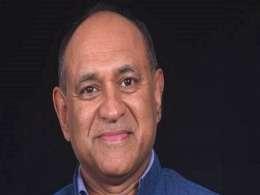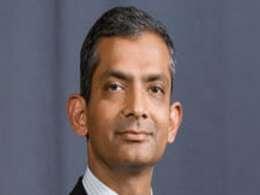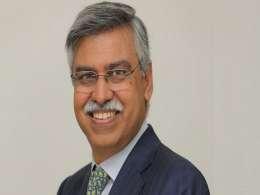The Budget provides for creation of more public healthcare network and medical institutions, talks about free drug service and diagnosis services to the poor and attracting investment in biotechnology but in general it gives the healthcare sector a miss.
Within the public sphere it talked about adding two National Institutes of Ageing for early quality diagnosis and treatment to TB patients at AIIMS, Delhi and Madras Medical College, Chennai. A national level research and referral Institute for higher dental studies would be set up in one of the existing dental institutions.
Four more AIIMS like institutions at Andhra Pradesh, West Bengal, Vidarbha in Maharashtra and Purvanchal in UP have been announced for which the government has set aside Rs 500 crore. It has also proposed to add 12 government medical colleges.
It has also talked about setting up 15 Model Rural Health Research centres to take up research on local health issues concerning rural population.
For the private healthcare industry at large, the government has proposed certain measures to boost investment in biotechnology. The development of biotech clusters in Faridabad and Bengaluru will be scaled up and will include global partnerships in accessing organism resources for disease biology, stem cell biology and for high-end electron microscopy.
The nascent agri-biotech cluster in Mohali will be scaled up to include plant-genetic and phenotype platforms. Secondary agriculture will be a major thrust in Mohali through collaborations in the public and private sector. In addition, two new clusters, in Pune and Kolkata will be established.
Among other measures, the FM exempted HIV/AIDS drugs and diagnostic kits imported or supplied locally under National AIDS Control Programme (NACP) funded by the Global Fund to Fight AIDS, TB and Malaria (GFATM) from both import and excise duty.
At the same time, countervailing duty exemption on portable X-ray machine/system is being withdrawn, which pushes up the cost of such devices for healthcare service firms such as hospitals.
Here are some views on the Union Budget from a cross section of stakeholders, be it drugmakers, hospital operators, diagnostics firms and investors in the field.
Malvinder Mohan Singh, executive chairman, Fortis Healthcare
Higher budgetary funds for building infrastructure for medical education, engineering and management are welcome steps. Specifically, the announcement to set up All India Institutes of Medical Sciences (AIIMS) in West Bengal, Andhra Pradesh, UP and Maharashtra, with the eventual intent to cover all states, will go some distance in bridging the supply demand gap for qualified medical personnel.
Suneeta Reddy, MD, Apollo Hospitals Group
Overall the 2014 Union Budget seems promising and has laid clear emphasis on facilitating infrastructure and long-term funding. The REITS is reflective of this and could release capital in infrastructure including healthcare. Overall a realistic and investor friendly Budget.
The proposal for setting up four AIIMS and thereafter in every state in the coming years is positive. Similarly, from an affordability perspective, the increase in FDI provision to 49 per cent for the insurance sector has a direct bearing on access to overall coverage with healthcare being a critical subset. From a public health perspective, ‘Swach Bharat Nirman’ is important as it is helps decrease healthcare costs given it is preventative in nature. On the same lines, the increase in taxes on tobacco and cigarettes is once again an effort to make India healthier. In terms of delivery of healthcare, the Budget’s emphasis on win-win PPP models enhances both flexible innovation and funding options. Finally medical tourism has been given a new thrust with suggestion of e-visas at airports on arrival for tourists.
Since the Budget is directional in nature and healthcare outlays are not yet detailed, the new government’s decision to engage with all stakeholders for an overarching health policy will be closely monitored by all.
Om Manchanda, CEO, Dr Lal’s PathLabs
It’s a very noble intent to bring healthcare for all which we welcome. However, the government did not mention any details around this and how it will implement it remains to be seen. A lot of consumables in diagnostics are imported and with weakening of the rupee the expenditure of diagnostic companies have gone up. We would have been happy to see a reduction in custom duty for these products. For ensuring safe disposal, exemption of medical waste treatment facilities from service tax is a step in the right direction. Setting up of Model Rural Health Research is a welcome step.
Ramesh Swaminathan, chief financial officer, Lupin
The Budget is unequivocally positive for the infrastructure, manufacturing and banking sectors; however, no incentives were given to the pharma industry. There is a need for the country to have universally accessible, affordable and effective healthcare and in order to do this, it is imperative for the government to offer tax incentives to encourage innovation in R&D and assist in developing and honing Indian IP – none of which has been addressed.
Having said that, there is, some renewed focus on healthcare in rural areas. Setting up research centres on TB towards affordable healthcare, along with four new AIIMS is a welcome move but what really needs to be done is the expansion of the healthcare budget, new investments to create medical infrastructure and ramp up the existing public health structure, investments to promote local manufacturing and research – which was missing in the Budget.
Ameera Shah, MD & CEO, Metropolis Healthcare
It is interesting to note that the government is willing to take up free drug service and free diagnostic service on priority. The government should definitely look at initiating Public Private Partnerships to take quality diagnostics to every corner of the nation and especially the rural areas.
Rs 500 crore allocation to set up four new AIIMS is encouraging but not enough to tackle the lack of healthcare infrastructure in the nation. There is a huge gap in health care spending, infrastructure and workforce. The investment in this sector has been much lesser than the economic growth and this has further crippled the industry. It is important to ensure adequate funds and keep various checks to be sure that is used efficiently.
Preventive healthcare which was on the agenda in the previous Budget has been ignored in the current one. A provision was made for deduction on account of expenditure on preventive health check-up up to Rs 5,000 in 2012. There needs to be intense awareness on this allocation so that the common man will actually make use of the exemption.
Sudarshan Ballal, medical director & chairman medical advisory board, Manipal Health
Overall it is a good Budget and from a doctor’s perspective it is a progressive one for the healthcare industry. Emphasis on preventive healthcare is an encouraging sign to the future of healthcare delivery system in the country. It is also heartening to see that government has given its due importance to address malnutrition, care for the aging and crisis management centre for women which indeed are very good initiatives. Ample attention has been given to address the manpower crunch in the industry. Setting up of four AIIMS means bridging the gap between shortage of talent and the availability of trained quality medical practitioners in the industry. Lastly, strengthening of drug testing and Drug Regulatory and Food Regulatory Systems will improve quality which once more assures a change for the good.
Pavan Kumar, consultant cardiac surgeon at Lilavati Hospital & head of cardiac surgery and telemedicine centre, Nanavati Hospital
The Union Budget of 2014 is totally uninspiring and pedestrian. A lot was expected from the Budget, but after the Budget was announced, no difference can be seen between the current and the earlier government. There are no new reforms for the health or pharma sector, if we talk about the health sector, the aim of "Health to All by 2020 " cannot be achieved by meager 1.7 per cent out of the total Budget. At least 3 to 4 per cent is needed to make this dream come true. Also, how can the government justify the allocation of Rs 200 crore for a statue when at the same time only Rs 100 crore is allocated for "Save the Girl Child" movement.
Zahabiya Khorakiwala, managing director, Wockhardt Hospitals
This year’s Budget has been a deviation from the trend, where healthcare has been mentioned quite often, and in a positive framework the finance minister, although walking a tight rope on the fiscal front, has initiated a substantial amount of measures which directly or indirectly affect the healthcare of the citizen.
The setting up of 12 more medical colleges and four AIIMS would be a welcome move as it would augment the very critical medical manpower in the country which is in very short supply. REITs’ entry in the real estate space may indirectly ease the woes of hospital industry, and e-visas would be a hassle-free tool for medical value travel. While saying this, there have not been mentions of any sops for the healthcare industry, or under National Health Assurance Mission. Government could also have promoted health insurance coverage for citizens by bringing it in the negative list for service tax. We still have to analyse if the healthcare spends suggested in this Budget have achieved a desirable level of percentage of GDP. The healthcare industry would also have been overjoyed, if it was included in the list of infrastructure sector, as it would have then availed several pushes designed in this Budget.
Overall, it looks as a positive step to categorise health as a major responsibility of the state and government’s willingness to attach the importance it deserves.
Amit Mookim, partner and head of healthcare practice, KPMG in India
Provisions in this year’s Budget are indicative of the focus on ensuring that quality healthcare reaches every level of the demographic pyramid. The provisions also aim to address the infrastructure deficit and bridge rural –urban disparity (15 model rural health research centres). Focus on addressing the skill gap via the National Skilling Programme is also commendable. The theme around this clearly reflects the proposition of providing greater access to care. However, providing industry status to healthcare would have helped, as well as incentives for domestic manufacturing of medical devices and consumables.
Mayur Sirdesai, co-founder, Somerset Indus Capital
There should have been some measures to boost Indian med-tech manufacturing by changing the duty structures. Also, the issue of FIPB clearance on pharma investments should have been addressed.
Increasing the number of AIIMS is a good idea but getting doctors to man these hospitals will be a key aspect for the success of this concept. Also, the increase the number of medical colleges especially in lower tier markets is a good idea as it will lead to specialists practicing in the smaller towns over the years.
Jayesh Shah, CFO, Intas Pharma
The overall Budget seems to be aspirational and the execution remains key. There is nothing specific to the pharma industry in the Budget except for “free drug service” and “free diagnostic services”, the details of which remain to be seen.
Ravi Pothineni, CFO, Ramesh Hospitals
In an earlier statement, the PM said that he would like to see every government hospital be equipped by a CT Scan and an MRI. In the Budget, the FM spoke about their plan to expand free diagnostic capabilities of hospitals which would be a significant step as most hospitals are lacking in that department and it would make healthcare affordable and accessible to more people. There is no mention about the budgetary allocation but this would be a welcome step. We are still looking for more clarity on GST which would take more time.
Amit Varma, co-founder Quadria Capital
The Budget overall seems well intentioned but a little ambivalent. I welcome the increase in FDI in health insurance, setting up more government hospitals and focus on improving education in medical space. However, the Budget has missed out on some critical areas in this sector. There was a case of missed opportunity as the government could have made many structural changes in the industry which would have been welcomed by everybody.
For example, healthcare industry has long been asking for infrastructure status. The government should have focused more on primary healthcare and highlighted exactly how it plans to increase affordability and accessibility especially in this segment. The pharmaceutical space has long been suffering because of taxes and custom duties and the government should give a little more support to this industry since as governments in other ASEAN countries are doing this and their pharma industry is quickly catching up with India.
Pervez Ahmed, vice chairman, Modi Healthcare and founder, Urgent Care
While the Finance Minister spoke about free drugs and diagnostic services for all, he did not mention just how he plans to do it and how much government will invest for it. He also spoke about starting four more AIIMS with an investment of just Rs 500 crore, which to be fair, is very less. The Budget mentioned development of skills like cobbler, weaver, etc but did not mention nurses or paramedical staff.
The Budget did not address some very critical issues like National Rural Health Mission (NRHM), percentage of GDP which will be allocated for public health expenditure or how it plans to make healthcare accessible and affordable. I would have liked to see government give healthcare infrastructure status or incentivise the sector so it sees more private investments. They should have spoken about public health expenditure which should be more than what it was last year—i.e just 1.2 per cent of GDP. This for a country like ours where around 50 per cent of population does not have access to quality healthcare. I would have liked to see healthcare get more importance, higher percentage of GDP spent and increase in quality and affordability. Overall I am not very happy with the Budget.
(Edited by Joby Puthuparampil Johnson)






